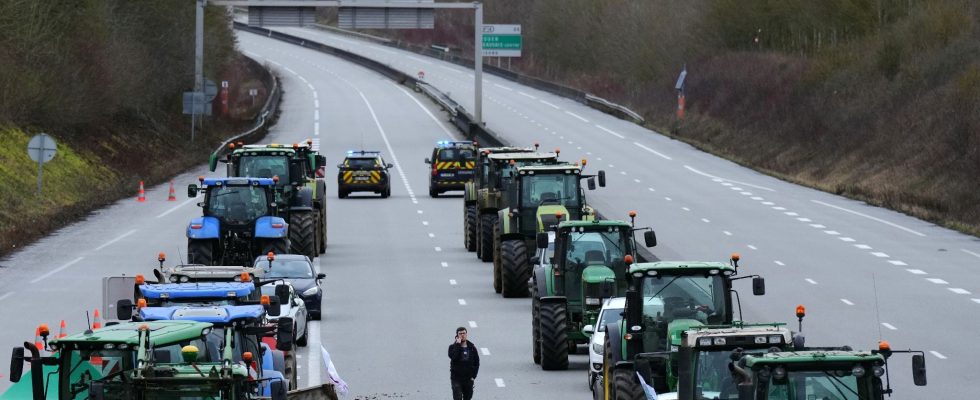While some farmers are calling for a reduction in non-road diesel (NGR), all studies indicate that we must stop subsidizing certain professional categories in their consumption of fossil fuels, insists economist Christian Gollier. This does not prevent us from helping them through other mechanisms.
The Express: The gradual end of part of the tax loophole on GNR worries farmers. Should the government remain firm?
Christian Gollier: This is the best option. Indeed, there are farmers who do not earn a lot of money and for whom every penny counts. But it is certainly not a good idea to support the income of these people in difficulty by offering them an exemption from the carbon taxes that other French people pay. I would still like to remind you that in 2019, during the yellow vest movement, one of the sources of revolt came from the fact that certain categories of professions were exempt from this tax, such as taxis, truckers, fishermen or farmers. It was unbearable for the demonstrators to see other citizens passing through the drops.
Economists also believe that these differences in treatment constitute a mistake. For several years, all the reports published in France and around the world show that we must stop subsidizing fossil products for certain categories of the population. On the other hand, nothing prevents us from financially helping people in more difficulty, with tax revenues from the carbon tax. The main thing is that the aid no longer depends on the volume of fuel consumed.
Remaining firm on the GNR also means avoiding seeing the demands spread?
Absolutely ! If we exempt farmers, why not plumbers tomorrow, and then another part of the population? The other problem with the current situation is that large farms also benefit from the rebate even though they have no financial difficulties. All this is reminiscent of the tariff shield designed in 2022-2023 to prevent the most modest households from suffering too much from rising energy prices. Ultimately, this system mainly benefited large consumers of gasoline and gas.
This total lack of targeting is absurd. It costs a lot of public money. Finally, let’s remember the obvious: if the government decided to exempt farmers from this carbon tax, it would be damaging from a climate point of view. Efforts must be shared. Establishing an effective mechanism for reducing CO2 emissions is a daily effort. It’s like a house of cards: if you remove one element, the whole thing collapses. We therefore need justice and transparency.
Efforts must be shared by everyone, but are the French, in general, ready for this?
Indeed, the population has not yet fully realized that to reduce CO2 emissions by 55% by 2030, it will be necessary to make efforts and sacrifices, which are not marginal. When they look at the situation of farmers, who are being asked to make more and more efforts, many say they are scandalized. But they do not realize the changes that are being prepared and which concern them. At the European level, for example, the adjustment of the carbon tax at borders will undoubtedly have an inflationary effect.
Furthermore, in 2027, the CO2 emissions permit system, to which companies in the energy sector already submit, will extend to transport and mobility. In turn, it will impact the cost of gasoline, domestic fuel oil or natural gas for heating. For now, we are still hiding the real costs of the transition from the French.
